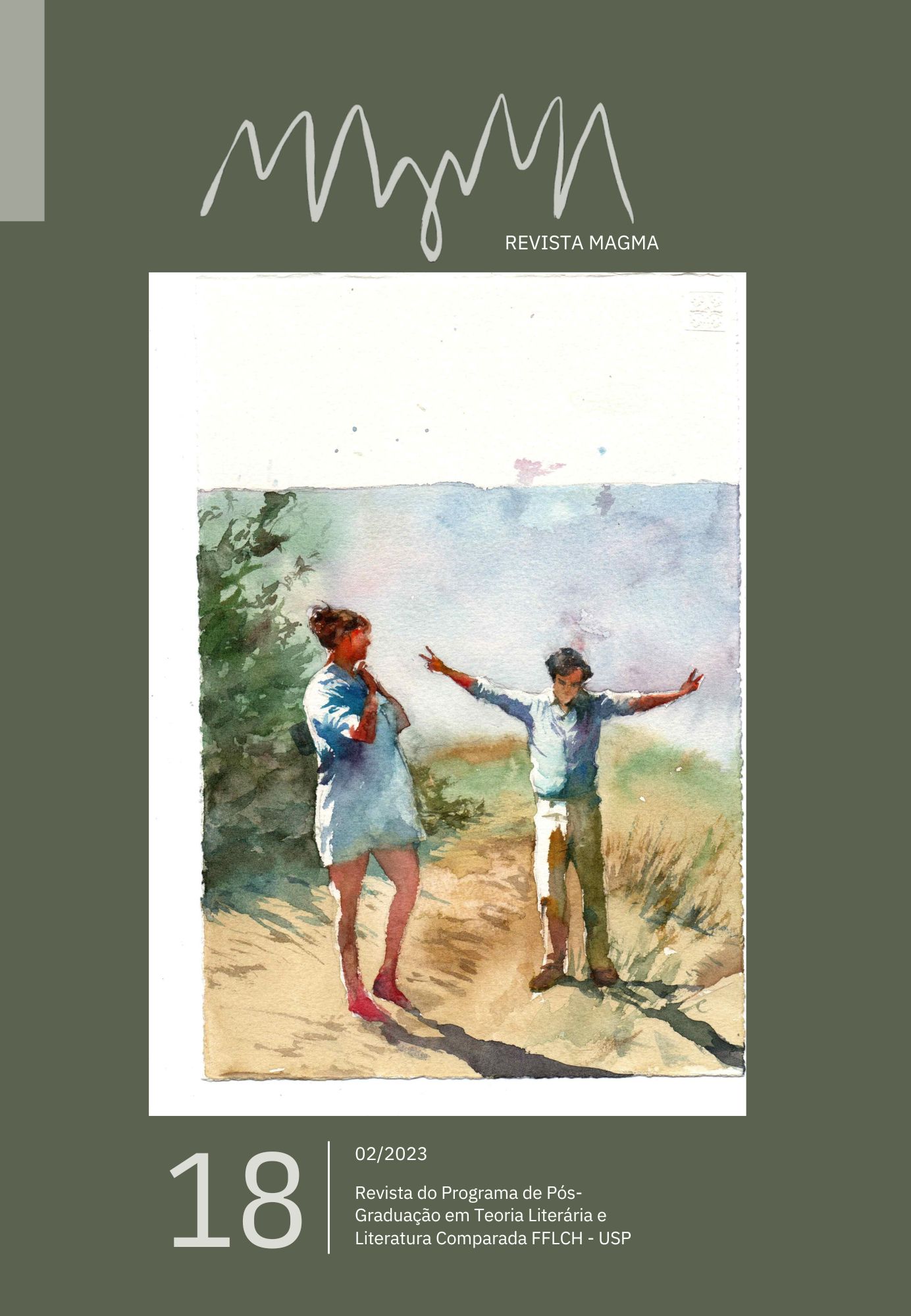Bertolt Brecht's political commitment
DOI:
https://doi.org/10.11606/issn.2448-1769.mag.2023.210604Keywords:
Bertolt Brecht, Epic theater, Commitment, Learning playsAbstract
Bertolt Brecht (1898-1956), German playwright and director, devoted his entire oeuvre to critical thinking and exploring the workings of social processes. His commitment to the political and cultural issues of his time - such as the advance of Nazi-fascism, his life in exile, and his criticism of capitalism –, as well as the theoretical formulation of a new form of theatrical production that opposes the bourgeois, hegemonic and market theater, find concreteness in his artistic practice, collectively realized in the work of the Berliner Ensemble, a theater group created by him and Helene Weigel in September 1949. It was his involvement with social issues that led him to develop a new way of making theater and to radicalize and refunctionalize the device. Based on a dialogue with Adorno and Benjamin, the article discusses the question of Brechtian engagement in light of aspects of his work.
Downloads
References
ADORNO, Theodor W. “Commitment”. In: Notes to literature. Nova York: Columbia University Press, vol. II, 1992, pp. 76-94.
BARNETT, David. Brecht in practice – Theatre, theory and performance. Londres: Bloomsbury, 2015.
BARNETT, David. The rise and fall of Modelbooks, Notate and the Brechtian method: Documentation and the Berliner Ensemble’s Changing Roles as a Theatre Company. Theatre Research International, 41: 2, 2016, pp. 106-121.
BENJAMIN, Walter. Ensaios sobre Brecht. São Paulo: Boitempo, 2017.
BORNHEIM, Gerd. Brecht – A estética do teatro. Rio de Janeiro: Graal, 1992.
BRECHT, Bertolt. Schriften zum Theater. Frankfurt: Suhrkamp Verlag, Vol. I-VII, 1963.
BRECHT, Bertolt. Teatro dialético. Rio de Janeiro: Civilização Brasileira, 1967.
BRECHT, Bertolt. Estudos sobre teatro. Rio de Janeiro: Nova Fronteira, 2005.
BRECHT, Bertolt. Bertolt Brecht’s Me-Ti – Book of interventions in the flow of things. Londres: Bloomsbury, 2016.
BRECHT, Bertolt.; BERLAU, Ruth; HUBALEK, Claus; PALITZSCHPALITZSCH, Peter; RÜLICKER, Käthe. Theaterarbeit. Dresden: VVV Dresdner Verlag, 1952.
COSTA, Iná Camargo. Sinta o drama. Petrópolis: Vozes, 1998.
DORT, Bernard. O teatro e sua realidade. São Paulo: Perspectiva, 2010.
JAMESON, Fredric. Brecht e a questão do método. São Paulo: Cosac Naify, 2013.
KOUDELA, Ingrid. Texto e jogo: uma didática brechtiana. São Paulo: Perspectiva, 2010.
KOUDELA, Ingrid. . (org.). Um vôo brechtiano. São Paulo: Perspectiva, 1992.
PASTA, José Antônio. Trabalho de Brecht. São Paulo: Duas Cidades, Ed. 34, 2010.
SCHWARZ, Roberto. “Altos e baixos da atualidade de Brecht”. In: Sequências brasileiras. São Paulo: Companhia das Letras, 1999, pp. 113-148.
WEKWERTH, Manfred. Diálogo sobre a encenação – Um manual de direção teatral. São Paulo: Hucitec, 1986.
WEKWERTH, Manfred.. Daring to play – a Brecht companion. Londres: Routledge, 2011.
Downloads
Published
Issue
Section
License
Copyright (c) 2023 Beatriz Calló

This work is licensed under a Creative Commons Attribution-NonCommercial-NoDerivatives 4.0 International License.
Autores que publicam nesta revista concordam com os seguintes termos:
- Autores mantém os direitos autorais e concedem à revista o direito de primeira publicação, com o trabalho simultaneamente licenciado sob a Licença Creative Commons Attribution CC-BY-NC-ND que permite o compartilhamento do trabalho com reconhecimento da autoria e publicação inicial nesta revista.
- Autores têm autorização para assumir contratos adicionais separadamente, para distribuição não-exclusiva da versão do trabalho publicada nesta revista (ex.: publicar em repositório institucional ou como capítulo de livro), com reconhecimento de autoria e publicação inicial nesta revista.
- Autores têm permissão e são estimulados a publicar e distribuir seu trabalho online (ex.: em repositórios institucionais ou na sua página pessoal) a qualquer ponto antes ou durante o processo editorial, já que isso pode gerar alterações produtivas, bem como aumentar o impacto e a citação do trabalho publicado (Veja O Efeito do Acesso Livre).



